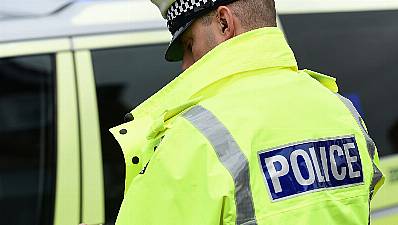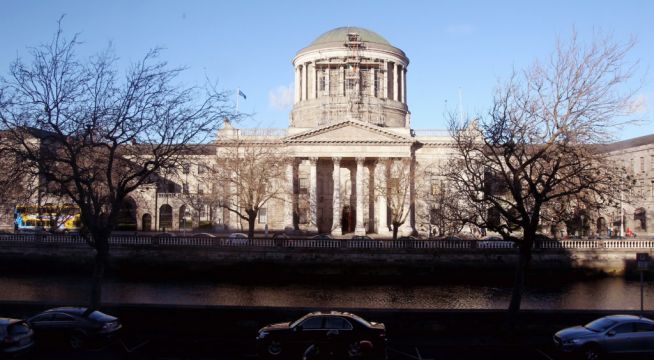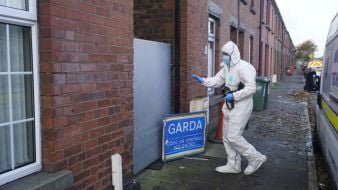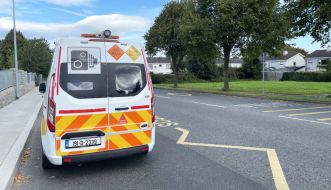A High Court judge has refused to order a woman to return her young daughter to the UK due to the "grave risk" that the child could be exposed to physical and psychological harm by her father.
Mr Justice Garrett Simons declined to make the order over concerns that if the child were returned to England, the father, who has an alleged history of committing domestic violence, would trespass at the mother's home and take the child.
The English-born mother had claimed that no restraining order granted by the English courts would prevent such an event happening, given the father's alleged volatile nature, regular angry outbursts, mental health difficulties and drug problems.
The mother, who has connections to this country, and her pre-school aged child travelled to Ireland from England earlier this year after, she claims, she had been subjected to incidents of domestic violence by the child's father.
The father who denied all the allegations against him, made an application before the Irish Courts under the Hague Convention - the international agreement which governs alleged 'child abduction' - for his daughter to be returned to her country of habitual residence.
The mother opposed the application. The parties cannot be identified by order of the court.
'Truly exceptional' case
In a recently published judgment, Mr Justice Simons said that while the default position of the Hague Convention was to make an order directing the return of a child, this was a "one of the truly exceptional cases where such an order should not be made".
In his decision, the judge noted the woman's claims that she has been the victim of domestic violence at the hands of the child's father.
She claims their child was present when the father pulled her hair, bit her, hit her with a hairbrush, and damaged her property.
The judge also noted that she had obtained an order from an English Court, known as a non-molestation order, against him.
The mother and daughter came to Ireland earlier this year after her partner had been arrested twice on the same day for alleged domestic violence incidents committed against her by the child's father.
The father, the judge said, denied all the allegations against him and had stated that his arrests were contrived to create an opportunity for her to move to Ireland.
The father also alleged that the mother was controlling of him, had scratched him with her nails on occasions, and was a habitual user of cannabis.
The father told the Irish High Court that he had consented to the non-molestation order and was happy to comply with an order to ensure her safety pending matters returning before the English family law courts.
In his decision, the judge said while the parents would no longer be living together if the woman was to return to England, he was satisfied that the harm complained of by the mother comes within the type of harm that part of the Hague Convention is intended to safeguard against.
Evidence was put before the court that the father, who had served with the British Army, suffered from PTSD and had a history of violence, including four convictions for assault, damaging property and battery, and has a history of substance abuse, depression and anger management.
The father had also breached the non-molestation order on two occasions by sending a message to the mother and an allegedly threatening post on his Instagram account, the judge held.
If the father had complied with that order the judge said then the potential risk to the child could be avoided. However, the court was satisfied that there was a grave risk of the father breaching the non-molestation order, which he said would expose the child to harm.
Red flags
The breaches of the order, a criminal offence in England, were obvious red flags and the father had untruthfully stated to the High Court that he had not broken the order, the judge said.
Other factors taken into account by the court included the fathers' previous convictions for violent behaviour and his alleged actions towards the mother when he was arrested twice on the same day.
A further factor, the judge said related to the father's attempts to ascertain the mother's whereabouts in Ireland.
Strong credible evidence had been put before the court that the father has gained access to one of the mother's email accounts, and then locked her out of the account by changing the password.
He then posed as the woman by sending emails from the account to the mother's relatives in an attempt to uncover the addresses where the mother and child were staying in Ireland.
While it was not possible for the court to make a definitive finding where the truth lies, the court had to take the allegations at their height in order evaluate the level of risk to the child.
The judge was satisfied that there was a grave risk that the father will contact, harass, the mother or enter her home.
The Hague Convention does not oblige a taking parent to tolerate such a grave risk, the judge said.
If the court ordered that the child be returned to England the mother could seek protection from the Police, there if she was subjected to any more incidents of domestic violence.
He said there are limits to what even the most diligent Police Force or Social services can do to guard against an alleged domestic abuser who has previously violated court orders.

The judge said his order should not be seen as being critical of either the English police or the social services there, who he said had tried to help and support the mother.
However, in the circumstances, the judge said he was declining to make an order that the child be returned to England.
If you have been affected by any of the issues raised in this article, you can contact Women’s Aid (24-hour freephone helpline at 1800 341 900, email helpline@womensaid.ie) or Men’s Aid Ireland (confidential helpline at 01-554 3811, email hello@mensaid.ie) for support and information.
Safe Ireland also outlines a number of local services and helplines at safeireland.ie/get-help/where-to-find-help/. In the case of an emergency, always dial 999/112.







